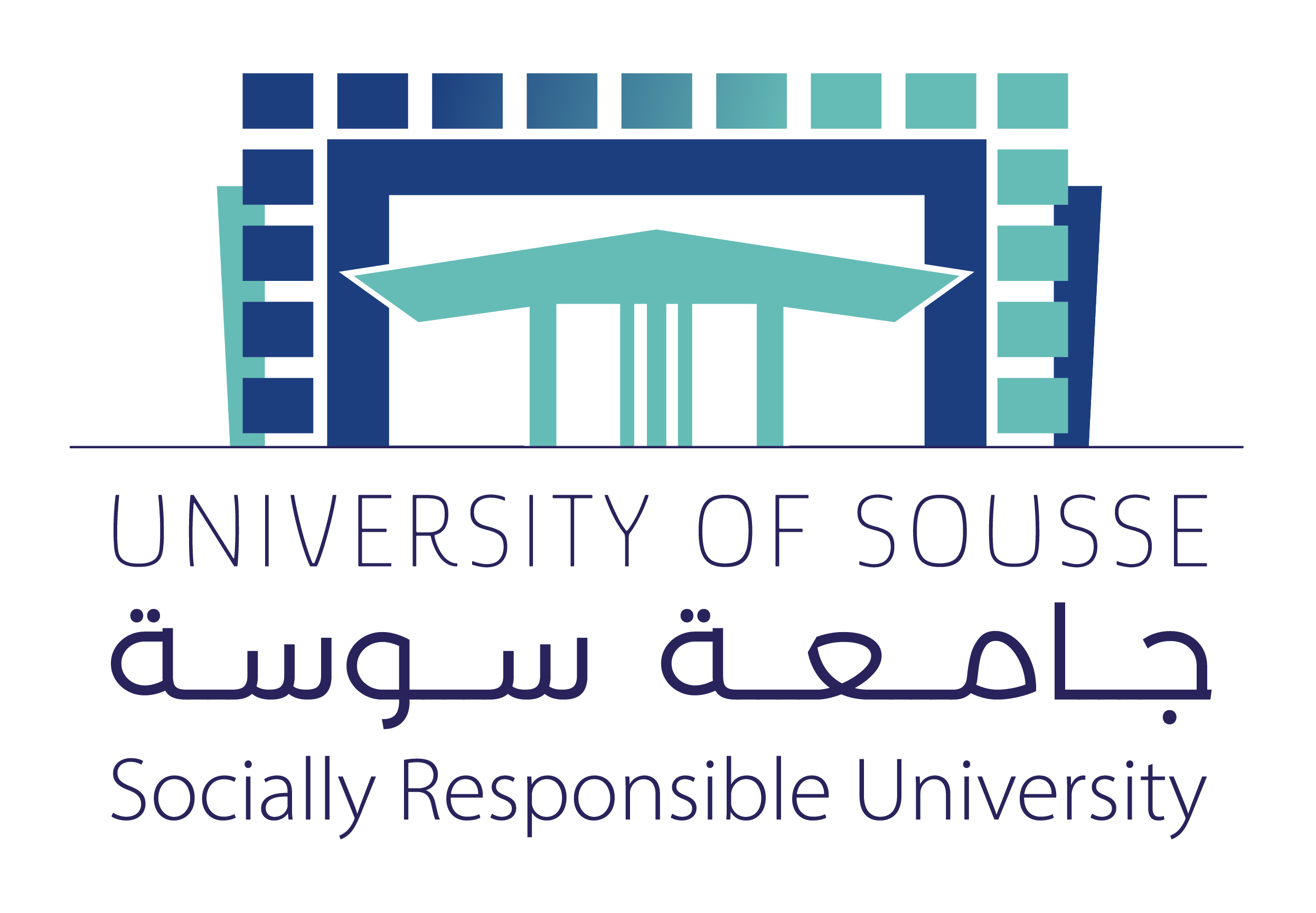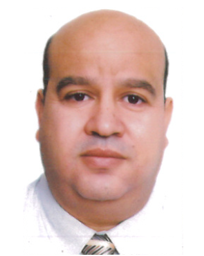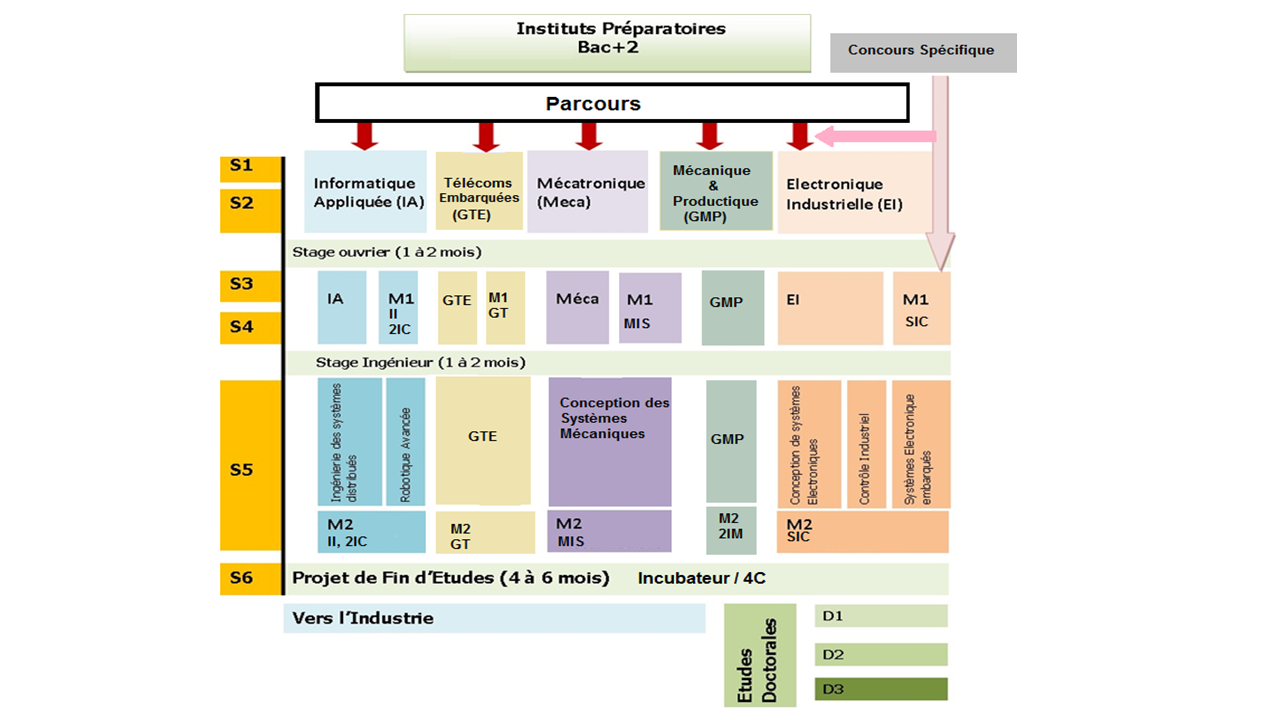





The Industrial Electronics department offers engineering training in Industrial Electronics. It also offers two Research Masters in Intelligent and Communicating Systems and Road Traffic Engineering within the framework of the Erasmus Hit4Med Project. The department also offers doctoral training in Electrical Engineering and has « Laboratory of Advanced Technology and Intelligent Systems » (LATIS).
The EI department brings together 30 permanent research teachers made up of two Professors, three Lecturers, twenty-one Assistant Professors and five Assistants; as well as 3 language teachers.
The department has several teaching laboratories including electronics, electrical engineering, embedded systems and industrial control. Through the EI stream, the department offers dual degree programs in Engineering and Masters with renowned schools such as ECAM Brussels, ENISE, INP Grenoble and Polytechnique Clermont.
ENISo offers a flexible curriculum allowing engineering students and students to access the professional, academic and especially entrepreneurial environment. Access to engineering training is mainly via the national competition for students of preparatory institutes. It can also be accessed via the specific competition based on file. From their second year, students can access Master 1 (M1) and continue in M2 to obtain a master's degree with that of engineer. The master's degree opens the horizons of research and allows access to the doctorate. From the third year, engineering students can access the school's incubator and launch a startup during their Final Studies Project.
 Director of Studies: Dr. Sabeur JEMMALI
Director of Studies: Dr. Sabeur JEMMALI

The training provided at ENISo focuses on the fundamental and multidisciplinary component. An intense and rich study regimen allows the selection of the country's future entrepreneurs and leaders. The training program lasts three years spread over five semesters of study and a final project of four to six months. In addition, there is an introductory internship in the first year and an engineering internship in the second year. In addition, the study programs follow the evolution of market needs. Although it is essential to ensure continuity and stability in the programs, it is necessary to have optional modules that allow the content of the programs to be adjusted in order to meet the new requirements of the socio-economic environment. The training covers three components: fundamental sciences, human sciences and specific training in engineering disciplines. "Soft skills" or professional skills constitute a fundamental component at ENISo. In order to train leaders and decision-makers, it is imperative to instill the entrepreneurial and leadership spirit in engineering students, as soon as they enter ENISo. Each student is asked to propose an innovative project that could eventually evolve into a startup. This project could be continued from one semester to the next. We learn to develop an innovative idea, transform it into specifications, present and defend it and finally obtain the means to carry it out. The next step is to go to the market and "sell" this innovation. In addition, practical work evolves and plays a key role in training. Basic concepts require application in order to be properly assimilated. As a result, the tools and equipment used to carry out practical work are constantly updated in order to meet the requirements of the training.
ENISo was created in July 2005 to meet a national need for engineers in innovative cutting-edge specialties, including mechatronics (Meca), industrial electronics and applied IT. In 2017-2018, two new courses were added, namely embedded telecommunications and mechanics and production engineering. These specialties allow ENISo to stand out from other national engineering schools.
Each of the five training courses offers versatile skills to facilitate our engineers' professional integration. The various study programs offered aim to provide engineering students with solid basic knowledge to be able to constantly adapt to technological developments.
ENISo is located in the heart of the "Novation City" of the city of Sousse, which is full of small and medium-sized enterprises in the fields of mechatronics, IT, telecommunications and electronics. These companies host a large proportion of ENISo graduates in internships, PFE and engineering positions. ENISo graduates have also acquired a great reputation in Greater Tunis and internationally with an employability rate of around 100% after one year.
ENISo has established a large number of partnership agreements with national and international companies and institutions allowing engineering students and pupils to get an introduction to the professional environment throughout their training.
At ENISo, we aim primarily to train job creators rather than job seekers, in the fields of the aforementioned sectors. We also aim to train researchers, particularly in high-level master's and doctorate programs in the fields of mechanical engineering, electrical engineering and ICT. We also aim to attract the best teachers and administrative executives to reach the top level worldwide.
The industrial nature of ENISo, particularly with two departments bearing this term in their names, requires it to insist on this aspect of training but above all to monitor its development.